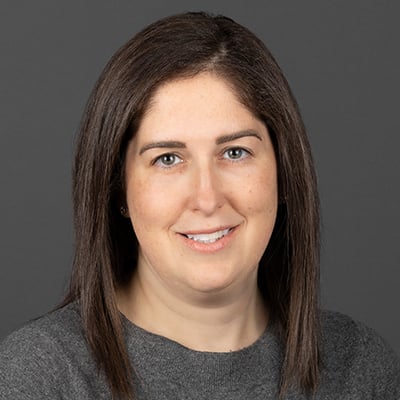Pro Bono Hotlist
Esther Lardent didn't mince words. The pro bono situation — and access to justice for the poor — is "hideous," Lardent, president of the Pro Bono Institute, said during an interview. "People talk about the justice gap; I now refer to it as the justice chasm."
There's a bit of a data lag here — surveys of law firm's pro bono hours won't be available until later in the new year. The National Law Journal affiliate The American Lawyer reported in July that large firms reported an 8 percent decline in average pro bono hours during 2010. This year, "anecdotally, I think it's very likely that the pro bono numbers will be lower, certainly than they were at their 2009 high," Lardent said.
The good news is that the profession is getting more innovative, she said. Judges have joined the agitation for improved access to justice, and corporate legal departments continue to ramp up — according to Lardent, nearly 300 now have forged pro bono partnerships with their outside firms. Global firms are going global with their pro bono programs.
This edition of the NLJ highlights 10 firms that haven't forgotten their professional obligations even — especially — during hard times. Often, at considerable expense or risk to themselves.
Charter school dispute had a strategic angle
The charter schools movement has been divisive for the past two decades, but an especially hard-fought dispute broke out in a New York City courtroom last spring and summer.
Kirkland & Ellis partners Andrew Dunlap and Jay Lefkowitz moved quickly and successfully, leading a group of lawyers representing 19 New York City charter schools fighting to open their doors this fall.
The issue was "co-location" — in late 2010, the New York City Department of Education (DOE) announced plans for these charter schools to share space on public school property alongside traditional classrooms. This spurred a community and teacher outcry that finally led to court action in the critical final months of preparation before the schools in question — with roughly 7,000 enrollees — could open.
In May, the United Federation of Teachers (New York City's teacher's union), the New York State Conference of the NAACP and a number of elected officials sued the DOE to block the co-locations as part of a related effort to challenge the city's decision to close 22 schools for poor performance in mostly minority neighborhoods.
"Our objective here is to make sure the schools don't become separate and unequal," Charles Moerdler of Stroock & Stroock & Lavan, lead attorney representing the union and the other plaintiffs, told The New York Times in June.
Kirkland entered the case as the pro bono representative of four of the charter schools in question in a case that, according to the Times, had roughly 30 lawyers in the courtroom. "Co-locations were approved in March, and [the opponents] could have filed their complaint at that time, but they chose to file in May," said Dunlap, a general litigator in Kirkland's New York office and recipient of the firm's pro bono service award in 2010. "That put us on a very short schedule. To litigate the full case, we had to do months of discovery in a couple of weeks."
Kirkland volunteered to take the lead counsel position among firms that included Paul, Weiss, Rifkind, Wharton & Garrison; Arnold & Porter; Mayer Brown; Akin Gump Strauss Hauer & Feld; and SNR Denton. Within two weeks, Dunlap, Lefkowitz and their team of full-time litigation and summer associates prepared an opposition brief that addressed whether the DOE had properly issued its co-location plans and whether those plans were in accordance with New York law.
On July 21, New York County, N.Y., Supreme Court Justice Paul Feinman denied the plaintiffs' request for a preliminary injunction and also dissolved an interim temporary restraining order against the openings. Feinman ruled that the union failed to clearly prove that the city had acted improperly in closing schools and co-locating the new charters. The Kirkland team called it an "interim" victory that at least got the schools open in time. Other aspects of the lawsuit continue.
Dunlap argued the motion and led the Kirkland team that included litigation associates Devora Allon, Samara Penn and Heather Thomas. "They all put in long hours and did excellent work," he said. Total pro bono attorney and staff time totaled roughly 450 hours.
Strategic Outlook
Lefkowitz, a former domestic policy adviser to both Bush administrations, has been active in education policy for the past two decades and has been involved in legal battles involving charter schools and vouchers in California, Wisconsin and Florida. He said charter schools are growing as a pro bono issue at law firms because the work "has an immediate, meaningful effect on the community" — and also because many firms' business clients have lent their support to the charter movement as a way to improve public education.
Dunlap added that many attorneys have made career moves into the charter-school world as a result of this experience. "They know what to ask for" and provide a level of organizational sophistication to schools that often start on the community level, he said.
Esther Lardent of the Washington-based Pro Bono Institute noted that charter school support among law firms has its controversial side. Nevertheless, it is a symbol of the increasingly strategic nature of pro bono work at law firms in general.
"People on the left and the right are in support of charter schools, and there's no question that it's a controversial school choice, but it's an area where lawyers can make a difference in education on the community level," Lardent said. "Law firms have become much more strategic about it."
REPRINTED WITH PERMISSION FROM THE JANUARY 2, 2012 EDITION OF THE NATIONAL LAW JOURNAL © 2012 ALM. ALL RIGHTS RESERVED. FURTHER DUPLICATION WITHOUT PERMISSION IS PROHIBITED


